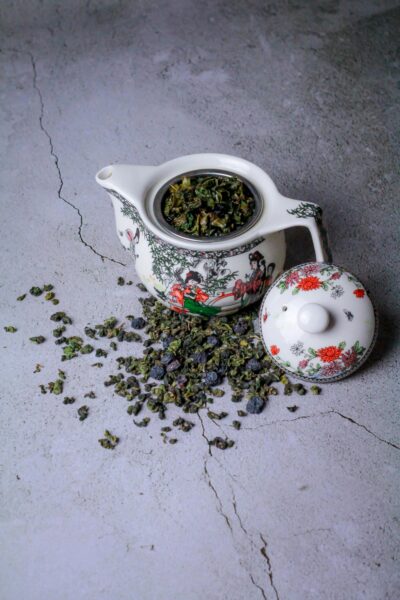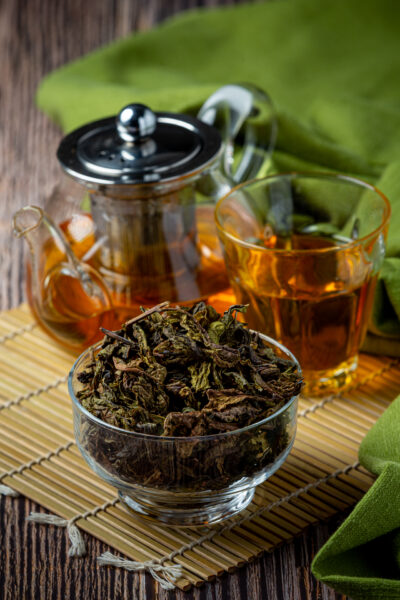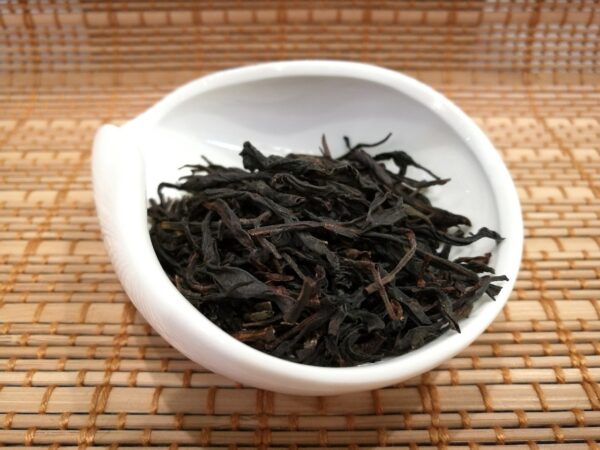
High blood pressure, also known as hypertension, is a common health concern that affects millions of people worldwide. While there are various medications available to manage this condition, many individuals seek natural remedies to complement their treatment. One such natural remedy is oolong tea, a traditional Chinese tea known for its unique flavor and numerous health benefits. In this blog post, we’ll explore how oolong tea can help manage high blood pressure and improve overall heart health.
Understanding Oolong Tea

Oolong tea is a partially fermented tea, falling somewhere between green and black tea in terms of oxidation. This unique fermentation process gives oolong tea its distinctive flavor and aroma, which can range from floral and fruity to woody and robust. The tea is rich in antioxidants, vitamins, and minerals, making it a valuable addition to a healthy diet.
How Oolong Tea Can Help Lower High Blood Pressure

- Rich in Antioxidants
Oolong tea is packed with antioxidants, particularly polyphenols, which play a crucial role in protecting the heart and blood vessels. These antioxidants help reduce oxidative stress, a key factor in the development of hypertension. By neutralizing free radicals, oolong tea can help maintain the health of the cardiovascular system.
- Improves Blood Vessel Function
Regular consumption of oolong tea has been shown to improve endothelial function. The endothelium is the inner lining of blood vessels, and its proper function is essential for maintaining healthy blood pressure levels. By promoting the production of nitric oxide, oolong tea helps relax blood vessels, improving blood flow and reducing pressure on the arterial walls.
- Reduces Cholesterol Levels
High cholesterol levels are often associated with hypertension. Oolong tea has been found to reduce LDL (bad) cholesterol while increasing HDL (good) cholesterol. This dual action helps prevent the buildup of plaque in the arteries, ensuring smooth blood flow and reducing the risk of high blood pressure.
- Promotes Weight Loss
Maintaining a healthy weight is vital for managing blood pressure. Oolong tea can aid in weight loss by boosting metabolism and enhancing fat oxidation. By helping to shed excess pounds, oolong tea indirectly contributes to lowering high blood pressure.
- Stress Reduction
Chronic stress is a significant contributor to high blood pressure. Oolong tea contains the amino acid L-theanine, known for its calming effects on the mind. Regular consumption of oolong tea can help reduce stress and anxiety levels, promoting relaxation and, consequently, lowering blood pressure.
How to Incorporate Oolong Tea into Your Diet

To reap the benefits of oolong tea, consider the following tips:
- Choose High-Quality Oolong Tea: Opt for organic, loose-leaf oolong tea to ensure you get the maximum health benefits without any added chemicals or preservatives.
- Brew it Right: Use fresh, filtered water and steep the tea leaves at the correct temperature (around 190°F or 90°C) for 3-5 minutes to release the tea’s beneficial compounds.
- Regular Consumption: Aim to drink 2-3 cups of oolong tea daily. Consistency is key to experiencing its long-term health benefits.
- Enjoy it Plain: Avoid adding sugar or artificial sweeteners to your tea. If you prefer a sweeter taste, consider adding a small amount of honey or a slice of lemon.
Oolong tea is a delicious and natural way to help manage high blood pressure. Its rich antioxidant content, ability to improve blood vessel function, reduce cholesterol levels, promote weight loss, and reduce stress make it an excellent addition to a heart-healthy lifestyle. As with any natural remedy, it’s essential to consult with your healthcare provider before making significant changes to your diet, especially if you have existing health conditions or are taking medications. Enjoy a soothing cup of oolong tea today and take a step towards better heart health!
